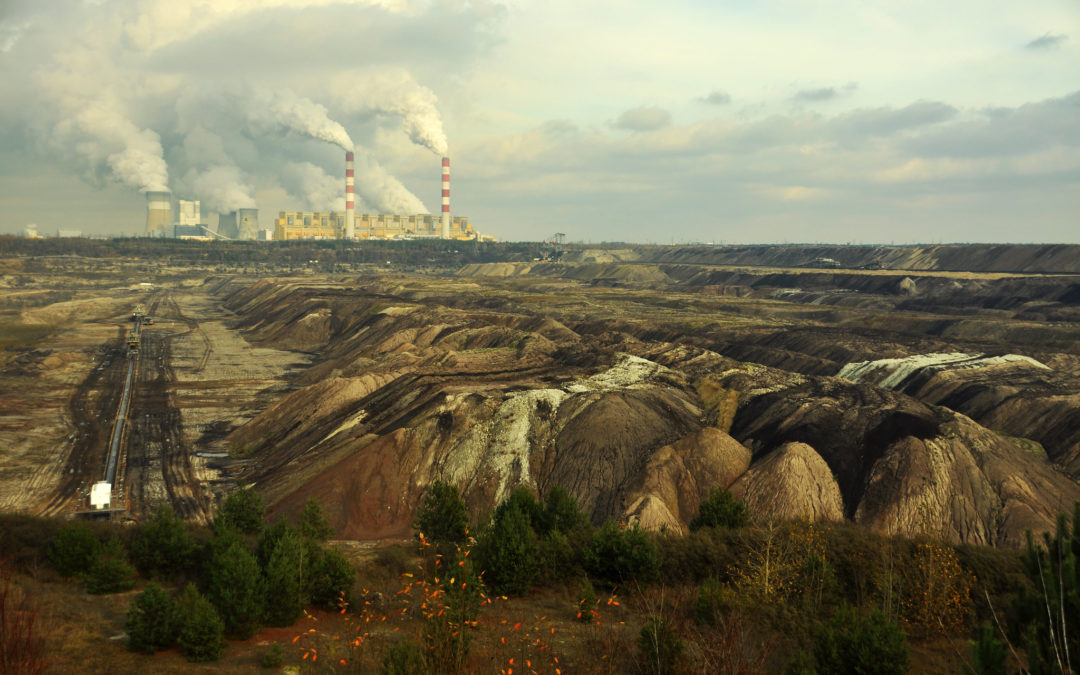The government has backed controversial plans for a new lignite open-pit mine at Złoczew, despite warnings of environmental damage, thousands of people potentially losing their homes, and major losses for the state energy group PGE itself, reports Gazeta Wyborcza.
The mine, which would be the deepest open pit in Poland, would be used to maintain brown coal supplies to the power station in Bełchatów, the largest coal plant in Europe, for the next 30 years
At a meeting on Wednesday, Adam Gawęda, a deputy minister of state assets, said that his ministry is “in favour” of allowing the mine to be built, though he stressed that PGE will have to decide whether to go ahead with construction.
But the plans – which would require 3,000 residents of 33 villages to be relocated away from the site – have met with resistance from environmental groups as well as some residents.
The mine would be a “cancer of the Polish soil”, says Stanisław Skibiński, president of the “No to the Złoczew Open Pit Mine” association, a group founded by locals and which includes many farmers whose land would be affected.
“The pit will be placed in a beautiful place of great ecological value. There are streams and forests – and all this is going to be destroyed now,” Skibiński told Business Insider. “We believe that it is important to keep this place for people.”
The mine would also exacerbate the Łódź province’s existing water shortages, reports Gazeta Wyborcza. Ilona Jędrasik from ClientEarth, an environmental law charity, warns that this would make farming conditions much worse, potentially meaning thousands of job losses.
The environmental organisation Greenpeace has also highlighted the dangers of lowered groundwater. Last year, it presented a report that showed the mine would lead to losses for agriculture and the agri-food industry in excess of 35 billion zloty, reports the Biznes Alert website.
In protest against the plans, the head of Greenpeace Poland, Paweł Szypulski, recently announced that he will apply for the position of president of PGE, saying as part of his bid that he would abandon the construction of the Złoczew mine and move away from coal by 2030.
Construction of the mine would also result in financial losses for PGE, according to the data from the Institute for Energy Economics and Financial Analysis (IEEFA). The mine would also prevent the company from receiving 2 billion euros from the EU’s Just Transition Fund, used to help mining regions move away from dependence on coal.
Business Insider also point out that the Złoczew mine would not match the capacity of mining in the Bełchatów and Szczerców fields. It could only produce 18 million tonnes of coal a year, compared to their 40 million tonnes.
However, others suggest that the mine may have a long-term benefit for Złoczew, citing the example of Kleszczów, which is home to the Bełchatów plant, and has for years been the country’s wealthiest district, according to Statistics Poland, a government agency. Its high position in the ranking is “the effect of high income from property tax and mining fees”, according to Business Insider.
Poland continues to be heavily reliant on coal, which produces around 80% of its power. The country accounts for 86% of hard coal produced in the EU. But environmental concerns and a powerful mining lobby mean that coal is a perennial political hot potato.
In December, Prime Minister Mateusz Morawiecki announced after the European Council summit that Poland was the only country not to have signed up to the EU’s 2050 goal.
In January, some miners met environmental activist Greta Thunberg, who had previously visited Bełchatów, drawing condemnation from other miners. Last week, the government announced that Polish state-owned companies will stop buying coal from Russia, another issue that has prompted protests.
Main image credit: Greenpeace Polska/Flickr (under CC BY-ND 2.0)





















